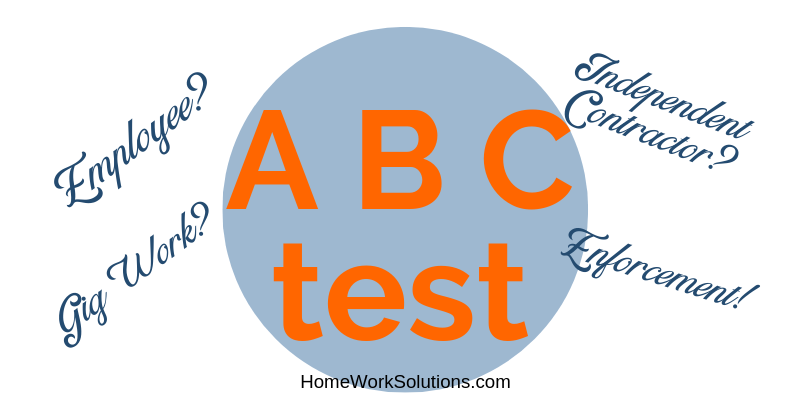
Household employees provide a valuable service to homes around the country, but when it comes to paying the person and adhering to proper tax laws, it can get confusing. Your role as a CPA or financial advisor is valuable, as you can explain some of these laws and answer questions on some of the basics. It is important to note that nannies, senior care professionals, private housekeepers, or personal assistants are not independent contractors and cannot be paid as such. Household employees are exactly that: employees.
It is important to note that nannies, senior care professionals, private housekeepers, or personal assistants are not independent contractors and cannot be paid as such.
Classifying these individuals properly is very important and a new “ABC Test” has been developed to help define who is an independent contractor and who isn’t. States such as California and New Jersey are aggressively looking at misclassification, as the gig economy often results in workers not enjoying the basic protections of minimum wage, overtime and unemployment insurance. This ABC test is being used across the country and helps limit the employer’s ability to classify their workers as an independent contractor, when they should really be claiming them as an employee. Here are the details:
State and Federal enforcement of misclassification investigations presume that a worker is an employee unless the employer can prove otherwise.
The most common ways that household worker misclassification comes to the attention of the state taxing authorities is when a worker files an unemployment or workers compensation insurance claim. By this point in time, employers find themselves on the hook for several years of back taxes, along with penalties and interest., or worse yet untold medical and lost wage expenses when the worker was injured Risks are not limited to unemployment taxes, as 41 states have automated, formal processes to share this information with the IRS who will be looking for both the employer and employee portions of the FICA taxes from the client family.
-
Control and Direction:
The IRS will look at behavioral, financial, and relationship control. That means that the worker is free of control and direction of the hiring entity when related to the performance of the work. This is critical in household employment, when a caregiver is hired as the presumption is that the hiring entity has the right to control how their children or vulnerable adults are cared for. -
Work Outside the Hiring Entity:
Workers that could be classified as independent contractors will need to provide services outside the core functions of a business. -
Customarily Engaged:
Workers that have their own practices or work for a variety of customers based off their professional training and experience could perhaps be classified as independent contractors. An example in the household space is a pool service or landscapers.
If you have clients coming to you to ask about their household employees, consider partnering with HomeWork Solutions to outsource their payroll and tax questions/paperwork. Outsourcing is a good way to delegate certain time consuming and low value parts of your CPA business, especially when household tax and labor laws change regularly. This means you will not only save time, but you can also ensure your client is connected o professionals whose core business is household payroll tax compliance . You don’t need to muddle it alone! Contact us today for more information.

